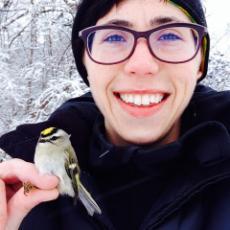Dr. Leah C. Wilson

Assistant Professor of Neuroscience
Shankweiler 241S / 484-664-4056
[email protected] / Website
B.A., Oberlin College
Reserach Interests: neural mechanisms of social behavior / stress / neuroendocrinology
Research Program
Why do animals behave the way that they do? I am interested in this fundamental question from a mechanistic perspective (how processes in the brain and body modulate behavior) and from an evolutionary perspective (how natural and sexual selection shape behavior). The mechanisms of social behavior (e.g. social bonds, reproductive behavior, aggression) are remarkably conserved across different groups of animals. Many of the same neurochemical systems that regulate social behavior in fish, amphibians, and birds also regulate social behavior in mammals, including humans. In my lab, we explore the neural mechanisms of behavior in the zebrafish, a highly social, freshwater fish native to South Asia. To coordinate a particular behavioral phenotype, neurochemical systems may display variation in cell number, cell activation, peptide innervation, and/or receptor density. Consequently, we are interested in multiple elements of numerous neurochemical circuits. One group of hormones of particular interest to us are the nonapeptides: tiny, ancient neurochemicals that regulate social and sexual behavior across all vertebrates. Mammals, including humans, make the nonapeptides oxytocin and vasopressin; fish produce the homologs isotocin and vasotocin. A primary goal of the lab is to understand how these neurochemicals regulate social behavior (e.g. joining a group) in response to specific environmental and social stimuli.
In addition to being fascinated by social behavior, I have long-standing interests in sex and gender. Where differences exist, what generates sex/gender differences in a particular trait – genes? hormones? social experiences? How do social and cultural contexts influence neuroscientific investigations of sex and gender?
Courses
- Neurons & Networks (NSC 311)
- Sex, Gender, & the Brain (NSC 3XX)
- Hormones & Behavior (NSC 3XX)
- Advanced Seminar in Neuroscience (NSC 401)
